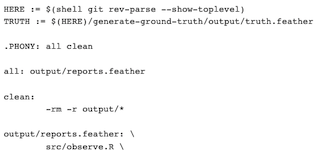Police Violence
Violence committed by police officers in the United States is paradoxically highly documented and incompletely documented. We frequently encounter this situation in our work—some victims’ stories are told by many sources, while other victims’ stories are rarely if ever told. This is the gap statistics can fill.
In 2015, the US Bureau of Justice Statistics concluded that two federal efforts to document deaths that occur during arrest were woefully incomplete. Their analysis relied on the same statistical methods HRDAG’s team has been using internationally for ...
Violence in Blue: The 2020 Update
HRDAG has refreshed a 2016 Granta article about homicides committed by police in the United States.
In Solidarity
We stand with our partners and every organizer fighting for justice.
How much faith can we place in coronavirus antibody tests?
Given a positive test result, what is the probability that an individual has antibodies? This HRDAG-authored Granta article explains the science.
Learning to Learn: Reflections on My Time at HRDAG
So much of what I learned at HRDAG was intangible, and I'm grateful to have been able to go deep.
How to Become a Data Scientist: My Lessons at HRDAG
I will use the skills and culture I learned from HRDAG’s team to understand how the conflict has affected the people in my country.
Welcoming Our New Foundation Relations and Strategy Lead
On March 16, Kristen Yawitz joined the HRDAG team in the role of Foundation Relations and Strategy Lead.
How Many People Will Get Covid-19?
HRDAG has authored two articles in Significance that add depth to discussions around infection rates.
A Model to Estimate SARS-CoV-2-Positive Americans
We’ve built a model for estimating the true number of positives, using what we have determined to be the most reliable datasets—deaths.
Epidemiology has theories. We should study them.
With so many dashboards and shiny visualizations, how can an interested non-technical reader find good science among the noise?
Welcoming Our New Statistician
Maria Gargiulo has joined HRDAG as a Statistician.
Uncertainty in COVID Fatality Rates
In this Granta article, HRDAG explains that neither the infectiousness nor the deadliness of the disease is set in stone.
Overbooking’s Impact on Pre-Trial Risk Assessment Tools
How do police officer booking decisions affect tools relied upon by judges?
Identifiers of Detained Children Have Implications for Data Security and Estimation
Identifiers being sequential could make possible estimations of the population of detained children.
HRDAG’s Year End Review: 2019
Enjoy this look at our highlights from the past year, made possible by our generous funders.
HRDAG at FAT* 2020: Pre-Trial Risk Assessment Tools
How do police officer booking decisions affect pre-trial risk assessment tools relied upon by judges?
Welcoming Our 2019-2020 Visiting Data Science Student
Bing Wang has joined HRDAG as a Visiting Data Science Student until the summer of 2020.
Learning a Modular, Auditable and Reproducible Workflow
The modular nature of the workflow and use of Git allowed us to work on different parts of the project from across the country.
.Rproj Considered Harmful
We aim to produce code that is clear, replicatable across machines and operating systems, and that leaves an easy-to-follow audit trail.
Killings of Social Movement Leaders in Colombia
Using multiple system estimation, we estimate the total population of social movement leaders killed in Colombia during 2018.




















